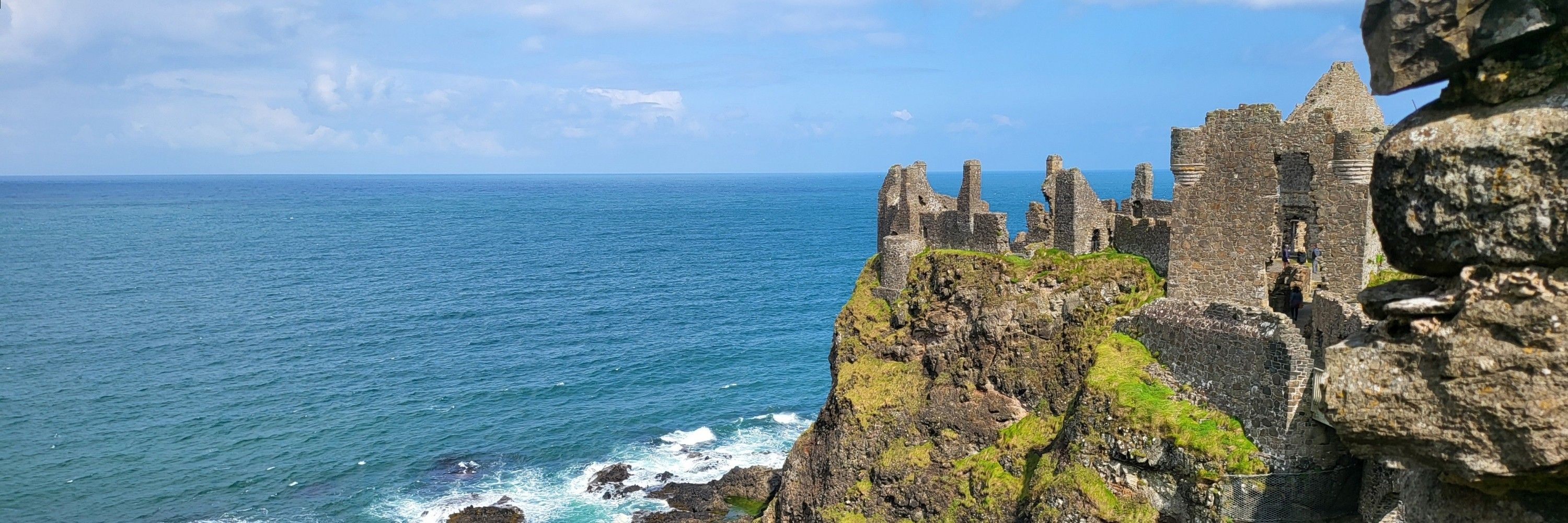
Chris Colvin
@cliochris.bsky.social
Reader in Economic History, Queen's University Belfast @quceh.bsky.social | Associate Editor, Business History @businesshistory.bsky.social | Website: https://www.chriscolvin.nl/
I was teaching Mokyr on the Industrial Revolution to my final-year economics students just last week. And next week, we're doing his work on the Great Irish Famine!
October 13, 2025 at 10:28 AM
I was teaching Mokyr on the Industrial Revolution to my final-year economics students just last week. And next week, we're doing his work on the Great Irish Famine!
We have different publication norms and processes to biological sciences. Each paper we write is longer, peer review is more thorough. This paper was 10 years of work. We benefitted from the input of dozens of reviewers and scores conferences audiences. Please don't accuse us of doing bad science.
August 6, 2025 at 6:32 PM
We have different publication norms and processes to biological sciences. Each paper we write is longer, peer review is more thorough. This paper was 10 years of work. We benefitted from the input of dozens of reviewers and scores conferences audiences. Please don't accuse us of doing bad science.
In economic history, we lead with the empirics. We uncover surprising patterns. We then propose plausible explanations. We test them as rigorously as possible, given data limitations. We conclude with the most convincing narrative, which is inherently falsifiable.
August 6, 2025 at 6:23 PM
In economic history, we lead with the empirics. We uncover surprising patterns. We then propose plausible explanations. We test them as rigorously as possible, given data limitations. We conclude with the most convincing narrative, which is inherently falsifiable.
We let the data speak. We ran every suggested robustness test. We are a multidisciplinary team with expertise in economics, history and health. We consulted epidemiologists and famine experts. We have a nuanced argument that addresses biological, socioeconomic and institutional factors. Please.

August 6, 2025 at 6:11 PM
We let the data speak. We ran every suggested robustness test. We are a multidisciplinary team with expertise in economics, history and health. We consulted epidemiologists and famine experts. We have a nuanced argument that addresses biological, socioeconomic and institutional factors. Please.
Read this, follow the links, you'll get a sense of which disciplines contribute to this field: theconversation.com/soaring-food...

Soaring food prices prove the Gaza famine is real – and will affect generations to come
History shows how devastating famines are and the lasting impact they have. Gaza is no different and a moral stain on those perpetuating it.
theconversation.com
August 6, 2025 at 9:00 AM
Read this, follow the links, you'll get a sense of which disciplines contribute to this field: theconversation.com/soaring-food...
Or google another Nobel winner: Angus Deaton, who has written extensively on selection and scarring. Or maybe just read our article rather than questioning our qualifications.
August 6, 2025 at 8:32 AM
Or google another Nobel winner: Angus Deaton, who has written extensively on selection and scarring. Or maybe just read our article rather than questioning our qualifications.
Anthropometrics is a very well established field with many health economics and economic history contributions. Just google Robert Fogel, Richard Steckel or John Komlos. Or take a look at the journal Economics & Human Biology.
August 6, 2025 at 8:28 AM
Anthropometrics is a very well established field with many health economics and economic history contributions. Just google Robert Fogel, Richard Steckel or John Komlos. Or take a look at the journal Economics & Human Biology.
Thanks! Exports were mostly higher-value cash crops. Proceeds were used to buy cheaper, higher-calorie imports. So exports probably saved lives. There were plenty of policy mistakes, but this is probably not one of them. I have written on policy lessons: www.economicsobservatory.com/the-great-ir...

The Great Irish Famine: what are the lessons for policy-makers today? - Economics Observatory
Catastrophic risks force policy-makers to make quick decisions based on limited information. The Great Irish Famine shows how such existential crises and the state’s response can precipitate radical a...
www.economicsobservatory.com
June 14, 2025 at 2:09 PM
Thanks! Exports were mostly higher-value cash crops. Proceeds were used to buy cheaper, higher-calorie imports. So exports probably saved lives. There were plenty of policy mistakes, but this is probably not one of them. I have written on policy lessons: www.economicsobservatory.com/the-great-ir...
And a non-technical summary of our article is over on RTÉ Brainstorm @rtebrainstorm.bsky.social www.rte.ie/brainstorm/2...

How changes in height show the effects of the Great Irish Famine
New research finds that the long‑term health impacts of the Great Irish Famine varied by region and socioeconomic conditions
www.rte.ie
June 13, 2025 at 4:43 PM
And a non-technical summary of our article is over on RTÉ Brainstorm @rtebrainstorm.bsky.social www.rte.ie/brainstorm/2...
The full article with @eoinaldo.bsky.social and Matthias can be accessed here:
doi.org/10.1111/ehr....
doi.org/10.1111/ehr....

<em>The Economic History Review</em> | EHS Journal | Wiley Online Library
How do famines shape the health of survivors? We examine the long-term impact of the Great Irish Famine (1845–52) on human stature, distinguishing between adverse scarring effects and the apparent re...
doi.org
June 13, 2025 at 4:41 PM
The full article with @eoinaldo.bsky.social and Matthias can be accessed here:
doi.org/10.1111/ehr....
doi.org/10.1111/ehr....
Thanks Robbie! I enjoyed my trip to Scotland, despite the winds... Yes, we first met at ASREC 2011, in DC. I think that's where I first met @essobecker.bsky.social too!
February 5, 2025 at 9:12 AM
Thanks Robbie! I enjoyed my trip to Scotland, despite the winds... Yes, we first met at ASREC 2011, in DC. I think that's where I first met @essobecker.bsky.social too!
Our paper would not have been possible without the data digitisation efforts of our RAs: Thomas Boys, Paudie McKee, Andrew Richie, Kyle Richmond and Holly Shannon.
January 28, 2025 at 3:30 PM
Our paper would not have been possible without the data digitisation efforts of our RAs: Thomas Boys, Paudie McKee, Andrew Richie, Kyle Richmond and Holly Shannon.

